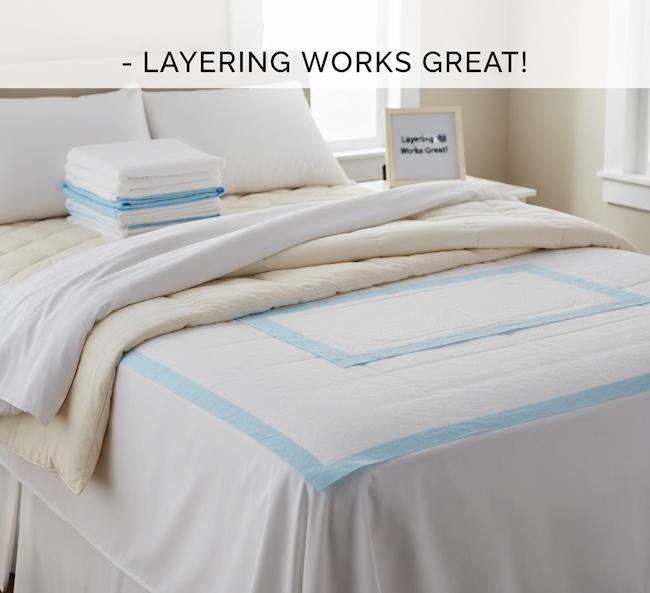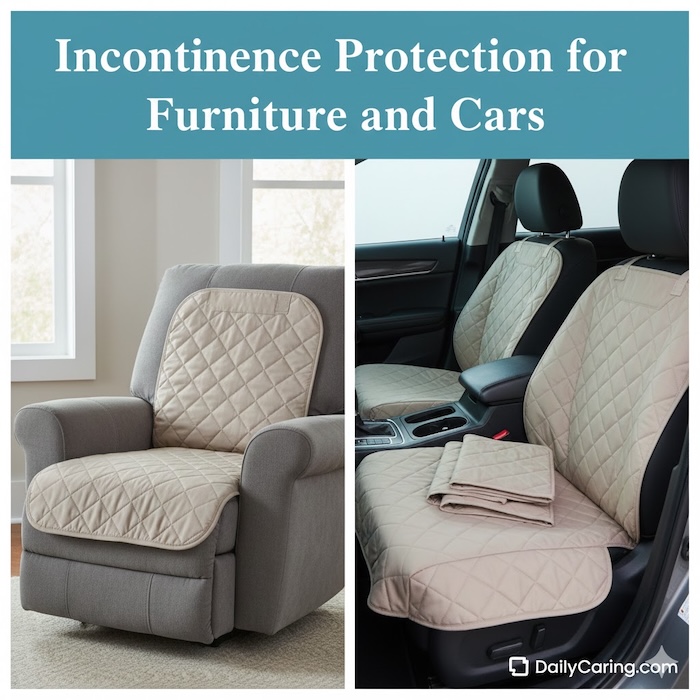Daily Caring is pleased to present our 2026 Guide to Finding the best wheelchairs for Seniors 2026. If you have any personal experience (or advice) while shopping for wheelchairs, we'd love to hear from you in the comments!
Choosing a wheelchair for a parent or spouse is more than just a medical decision; it’s a lifestyle shift. If you’re feeling overwhelmed by the technical jargon of seat widths, weight capacities, and insurance codes, you aren't alone.
Most family caregivers tell us their biggest fear isn't just their loved one’s mobility; it’s the physical toll of lifting heavy equipment and the worry that a chair won't be comfortable enough for “all-day” use.

The good news? In 2026, the “heavy, clunky wheelchair” is a thing of the past.
From ultra-lightweight carbon fiber frames that you can lift with one hand to smart-folding electric chairs that do the hard work for you, mobility solutions have never been more caregiver-friendly.
This guide breaks down the main types of wheelchairs for seniors, highlights must-have accessories, and simplifies the latest Medicare coverage rules.
Wheelchairs for Seniors Compared: Which Wheelchair Fits Your Life?
Use this table to narrow down your options based on how the chair will be used most often.
| Wheelchair Type | Best Use Case | Avg. Weight | Caregiver Effort |
|---|---|---|---|
| Transport Chair | Quick errands, doctor visits | 15–20 lbs | High (Must be pushed) |
| Manual Wheelchair | Daily home use, independence | 30–38 lbs | Medium (Self-propelled) |
| Carbon Fiber Power | Travel, long outdoor outings | 25–45 lbs | Low (Joystick control) |
| Tilt-in-Space | Long-term comfort/skin care | 50+ lbs | Variable (Specialized) |
3 Game-Changing Trends When it Comes to Wheelchairs for Seniors in 2026
The mobility market has seen a massive leap in technology this year. If you want lightweight wheelchairs for seniors that actually reduce your workload, keep an eye on these features:
- Carbon Fiber Dominance: Frames like the Pride Jazzy Carbon have significantly reduced the weight of electric chairs (some under 35 lbs), making them light enough for most adults to lift into a trunk solo.
- Remote Auto-Folding: No more wrestling with heavy latches. Many 2026 models now feature remote-controlled folding, so the chair packs itself while you assist your loved one into the car.
- Ergonomic Seating: For those needing a manual wheelchair for seniors, the Karman S-Ergo 115 uses a patented S-shape seat to distribute weight more evenly, preventing the “sliding” and posture issues common in cheaper models.
Expert Advice: Selecting for Comfort
Sitting for long periods can lead to pressure sores and back pain. We recommend watching this video by professional physical therapists to understand how ergonomic design saves a senior's posture and a caregiver's energy.
VIDEO: Get Informed about Choosing Wheelchairs for Seniors!
Medicare & Insurance: Getting Coverage in 2026
Medicare Part B generally covers 80% of the cost for a wheelchair as Durable Medical Equipment (DME), provided you meet these strict 2026 criteria:
- The “In-Home” Rule: Medicare only covers wheelchairs for seniors if they are medically necessary for performing daily activities (like bathing or dressing) inside the home.
- Face-to-Face Exam: Your doctor must conduct an in-person exam to prove the need for mobility assistance.
- 2026 Financials: The Medicare Part B deductible for 2026 is $283. Once met, you are responsible for 20% of the Medicare-approved amount.
The Caregiver's “Trunk Test” Checklist

Before buying, use this 2026 checklist to ensure you’re getting the best wheelchairs for seniors' needs and your own:
- The Weight Lift: Can you comfortably lift the chair's “net weight”? Look for ultra-lightweight options if you have back concerns.
- Gatekeeper Width: Measure your narrowest bathroom door. Most standard chairs are 24–26 inches wide; you may need a “narrow” model.
- Battery Safety: If you plan to travel, make sure the chair uses airline-approved lithium batteries (typically 160Wh or less).
- Posture Support: Look for chairs with Strongback 24 technology or similar built-in lumbar support to avoid the need for expensive aftermarket cushions.
Strongback 24 technology merges the portability and lightweight features of a transport chair with advanced ergonomic support to maximize user comfort and spinal health.
The Caregiver's “Trunk Test” for Wheelchairs
Before buying, use this Daily Caring checklist to ensure you’re getting the best wheelchairs for seniors' needs and your own.
The Caregiver's “Trunk Test” Checklist
Navigating the Paperwork: Your 2026 Medicare Roadmap: Wheelchairs for Seniors
While the “Trunk Test” ensures the chair fits your vehicle, the Medicare Approval Process ensures the chair fits your budget. In 2026, Medicare Part B remains a vital resource, but the “In-Home Use” rule is more strictly enforced than ever. To qualify for the 80% coverage benefit, you must prove that the wheelchair is a medical necessity for daily activities (like reaching the bathroom or kitchen) rather than just for “trips to the mall.”
Use the interactive checklist below to track your progress through the 2026 requirements before you head to your appointment.
Step-by-Step Medicare Approval
Final Thoughts: Protecting Your Freedom (and Your Back)
Selecting the right wheelchairs for seniors is about more than just finding a seat on wheels; it is about reclaiming the ability to participate in the moments that matter. Whether it’s a trip to a grandchild’s graduation or a simple roll through the local park, the right equipment turns a “stay-at-home” day into an adventure.
As a caregiver, your health is just as important as your loved one’s. By choosing modern, lightweight wheelchairs for seniors and utilizing the 2026 Medicare benefits available to you, you are reducing your physical strain and emotional stress. You are not just a “pusher” of a chair – you are the facilitator of independence!
Take the Next Step
- Download the Guide: Save this page to your bookmarks or print out our Interactive Checklists for your next doctor’s visit.
- Schedule the Exam: Call your primary care physician today to schedule the “Face-to-Face” mobility exam required for Medicare coverage.
- Test a Model: If possible, visit a local medical supply showroom to perform your own “Trunk Test” and confirm both comfort and ergonomics before finalizing a purchase.
You’ve got this. Every step you take toward the right mobility solution is a step toward a more active, connected, and stress-free life for both you and your loved one.
Recommended for you:
- 3 Ways to Get the Home Medical Equipment That Seniors Need: Wheelchairs, Hospital Beds, and More
- Finding Used Medical Equipment
- 3 Inexpensive Door Updates Make Aging in Place Easier and Safer
About the Author

Chris is a seasoned healthcare executive and entrepreneur from the Pacific Northwest. He strongly advocates for older adults and the caregivers who serve them. Chris has personal experience caring for his father, who had dementia. Chris is an avid outdoorsman; if he's not in his office, he can usually be found on a golf course or in a garden out west somewhere.













